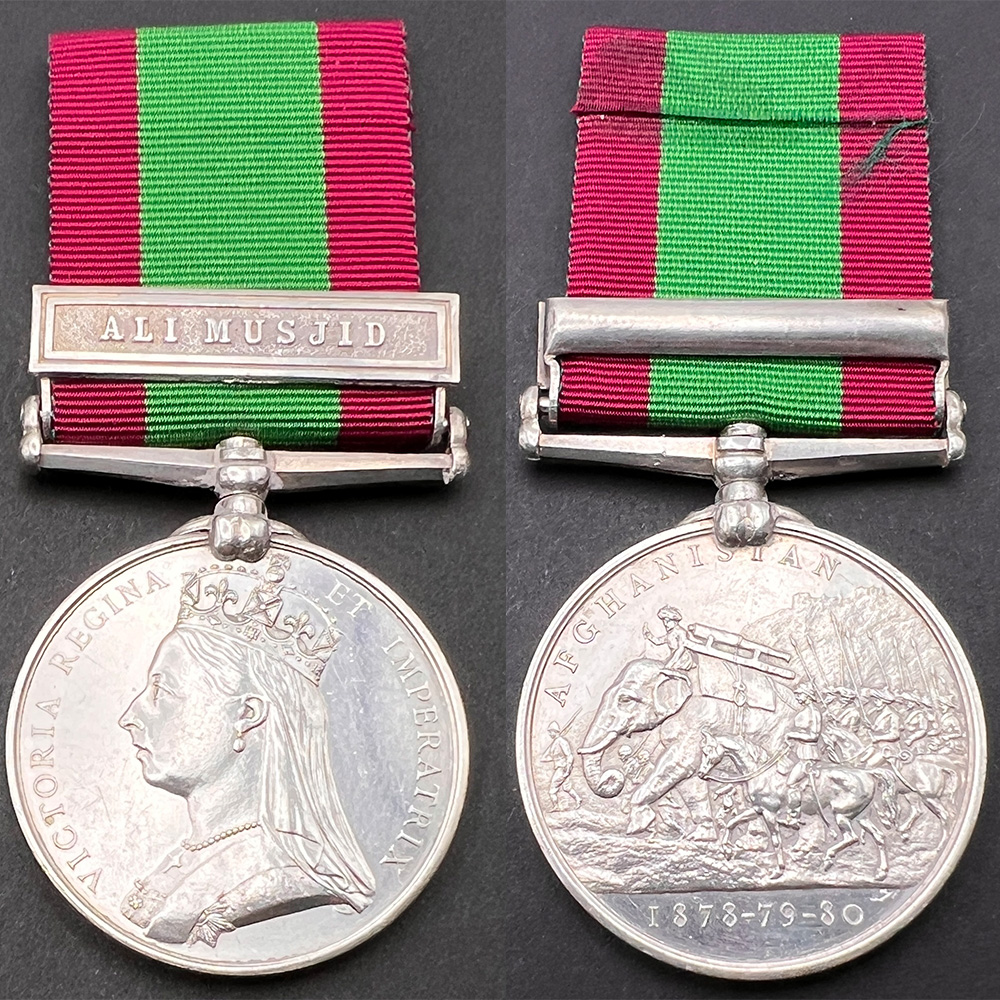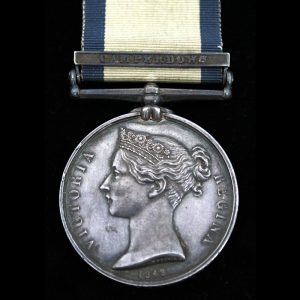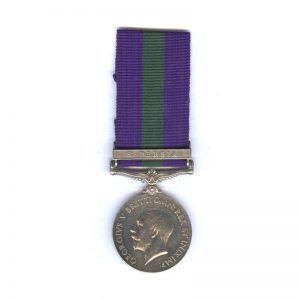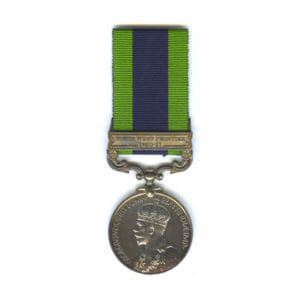Description
Afghanistan Medal, bar Ali Musjid, 1040 Private David Coburn, 51st Foot, King’s Own Yorkshire Light Infantry. Excellent preserved condition.
Officially engraved: “1040 Pte D. Coburn. 51st Regt”
Confirmed on the medal roll.
With copy service papers.
Excellent condition as awarded at the end of his 19 year career in the Army.
David Coburn, was a Bricklayer, born in Maulden, Ampthill, Bedfordshire.
Served 19 years 120 days, with 7 years 365 days overseas.
East Indies, 7 years 85 days, with 74 days on Disembarkation.
“His conduct has been good, latterley he is in possession of 3 good conduct badges.”
“His name appears 15 times in the Regimental Defaulters Book and he has been 1 times tried by Court Martial.”
Discharged with “Chronic Bronchitis.”
“Health failed at Peshawar during 1878-1879, During 7 years of Indian Service he had sunstroke in 1876 and enteric fever in 1878.
In Afghanistan he suffered with Bronchitis during the ..
Disability is caused and aggravated by climate.
Permanent, he is worn out, able to earn a small livelihood.”
After his discharge he said he would return home to Maulden, Bedford.
He returned back to his parents home at Hall End in Maulden, shown there on the 1881 census.
He died there in Ampthill, Bedford, during 1887.
The Battle of Ali Musjid took place during the Second Anglo-Afghan War, which lasted from 1878 to 1880. Ali Masjid is a strategic fortress located on the eastern end of the Khyber Pass in present-day Pakistan. The British forces aimed to secure the Khyber Pass to maintain control over the route between British India and Afghanistan.
On November 21, 1878, the 51st Foot, along with other British and Indian troops, fought against Afghan forces at the Battle of Ali Musjid. The British forces, under the command of Lieutenant-General Sir Samuel Browne, sought to capture the fortress from Afghan defenders.
During the battle, the 51st Foot and other units faced heavy resistance from Afghan fighters. The fighting was intense, with both sides exchanging volleys of gunfire. Eventually, the British forces managed to breach the defenses and capture Ali Musjid.
The Battle of Ali Musjid was a significant victory for the British forces, as it allowed them to establish control over the Khyber Pass. However, the war continued for several more years, marked by further battles and conflicts between the British and Afghan forces.




